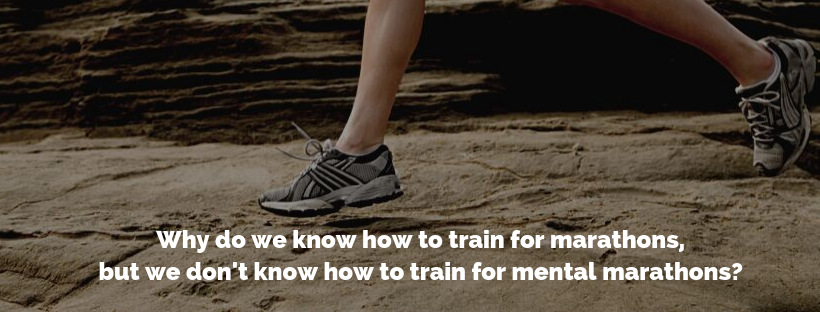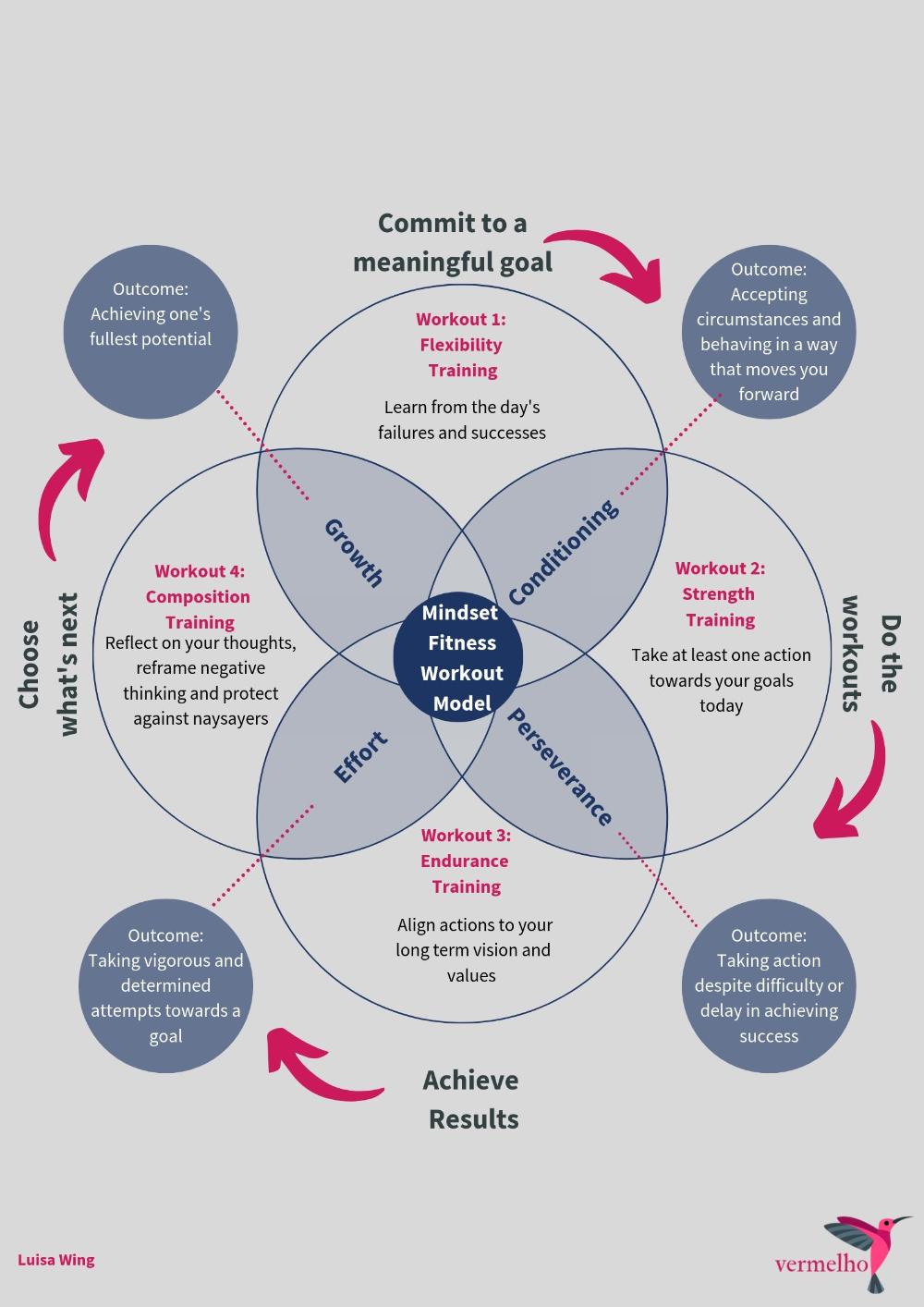
All of us have experience with goal setting. Some only with the ubiquitous “New year’s Resolution” but many of us use goal-setting processes effectively throughout the year, to try to focus efforts and increase personal performance. Naturally, businesses use strategic goals and KPI’s to propel their mission or profits forward.
Even so, the reality is that many feel frustrated around setting goals, feeling vaguely like they should be setting them but not really knowing how to make them work for them. Chances are many allow their manager or supervisor to set goals for them. This can be wasteful if they don’t connect with the goal or see it as meaningful for them. I particularly see this type of goal setting occur in many change projects, where goals for change are set by senior leaders, and the goals have no meaningful connection to their teams. Or at least, the connections are not communicated in a way that means something to their teams.
Using goal setting effectively can be surprisingly challenging. This is further exacerbated by fixed mindsets that prevent people from seeing opportunities in failures. And it’s not enough to just record a goal and write it down either. Thinking is not the same as doing.
In her book, The How of Happiness, psychology researcher Sonja Lyubomirsky points out six specific benefits goal setting can bring to our well-being. She uses the term “committed goal pursuit” to emphasize that we're not just talking about creating lists of goals but that we're focused on the process of following through with them. Lyubomirsky’s list states that meaningful goals:
1. Give a sense of purpose and a feeling of control to our lives;
2. Increase self-esteem and can also motivate us to continue to exert effort toward further goals;
3. Add structure and interest to our daily lives. We can't get to where we want to go without doing different things, and without learning new things. This helps us master new skills and broaden our perspectives;
4. Help us learn to strategise and prioritise our time;
5. Can be helpful to us in times of crisis. Provided we're still able to accomplish the goals, they can help keep us grounded in times of change or uncertainty;
6. Frequently bring us into contact with other people through collaboration, helping us feel more deeply connected in our relationships, and our communities.
Clearly goals are important! So why is it that many fail at effective goal setting?
Back in 1994, C.R. Snyder published a book called The Psychology Of Hope: You Can Get There From Here. He talks about destination, willpower and waypower. Goals are the destination on a journey. Willpower is the fuel you'll use to get there. And the waypower is the map you will need to figure out how to get there.
To move toward our goals effectively, we need to have a clear sense of what our goals are. Plenty of motivation to move toward them and enough alternate routes that we can continue to move forward, even when one pathway is blocked.
Snyder emphasizes the importance of controlling attention robbers, having the mindset to see challenges as motivators and suggests we break up long-range goals into smaller steps. Lastly, Snyder suggests practising laying out different routes to your goals and then selecting the best one.
This brings me to mindset and resilience and the work I have been doing on developing a mindset fitness model that propels people and teams towards achieving their goals.
In the last 12 months I have often asked myself “Why is it that people don’t improve their mindset fitness? Why do we know how to train for marathons, but we don't know how to train for mental marathons?”
Firstly, what do I mean by "mental marathons"? Simply put, it's what happens when we have complex goals that take a long time to achieve. Things like visionary strategic goals, lofty KPI's, optimistic income targets, and large transformation project goals. Personally, it could be finishing an MBA, undertaking a career change, or starting a business. We continuously generate change. The mental demands on goals pursuits such as these are akin to running a mental marathon! This demands the resilience and growth mindsets that goal theories elude to.
So I began to imagine a world where we paid attention to our mindset fitness as much as we do to our physical fitness. In the same way that neglecting our nutrition and physical exercise can cause health problems, neglecting mindset fitness can cause problems with achieving goals, staying the course, and maintaining resilience when goals seem overwhelming. They lose willpower. They lose waypower. Mindset workouts are as important as muscle workouts. When a challenging event or circumstance arises, we must have the mindset fitness to respond in a positive way or risk a decline in the mental will to continue the pursuit of the goal and potentially even a decline in mental wellbeing.
Here is my response to that. A mindset fitness model based on what I’ve seen working with my clients on mindset and change and through what I apply in my own goal setting. It has helped me grow a successful practice and train for ultra-marathons (the running kind). It brings together the knowledge we have on developing growth mindsets and goal setting theories to help people deal with the mental marathons of today. A detailed explanation can be found below.

1. The first step is committing to a meaningful goal. If you are setting a personal goal, it's important not just to follow your passion, but to foster it. Angela Duckworth’s research on grit shows that passion is not just something you're born with or that usually emerges naturally over the course of your childhood. Or that hits you like a bolt of lightning in your adolescence. It is something you have to foster. Duckworth says you can do so by cultivating your interests. Another way to set meaningful goals is to write down your personal values and personal vision for yourself in the future. Then write down a goal that allows you to grow in your values or helps you attain your vision. Similarly, connect business goals with your team's values and with what's important for them.
2. Then it’s time to do the workouts. These can take 10 to 20 minutes per day. A good time is in the evening, before going to bed.
- Workout 1: Flexibility Training. Learn from the day's failures and successes in the pursuit of your goal. What worked? What didn’t work? What are you grateful for? This helps you stay flexible when things didn’t go as planned and make changes to your actions tomorrow.
- Workout 2: Strength Training. Decide on which action you will take tomorrow to move you towards your goal. This strengthens your chance for achieving your goal.
- Workout 3: Endurance Training. Ask if your actions and goals are aligned to your long-term vision and values. This builds resilience.
- Workout 4: Composition Training. Reflect on your thoughts. Do you need to reframe negative thinking? Do you need to protect from the naysayers in your own mind and around you? This changes the composition of your thoughts, so you don’t become demotivated.
4. Now it’s time to choose what’s next. Once you have decided, it’s back to step 1 where you commit to a new meaningful goal.
What are the outcomes I have seen from practicing these workouts and recommending them to my clients?
1. Conditioning: The combination of workouts 1 and 2 allows us to accept our circumstances and behave in a way that moves us forward. They allow us to accept failures, learn from them, and take the next step.
2. Perseverance: Workout 2 and 3 propel us to act despite difficulty or delay in achieving success because we are aligned to meaningful visions and values.
3. Effort: Workout 3 and 4 allow us to make vigorous and determined attempts towards our goal because we don’t allow negative thinking to stop us on our meaningful pursuits.
4. Growth: Workout 4 and 1 allow us to achieve our fullest potential because we don’t hold ourselves back, and we use failures as opportunities to move ahead.
With a bit of daily mindset fitness training, I believe anyone can start to set meaningful goals, either personally or for their business or team. This can also be used as a coaching model, to help you ask your team the right questions and keep their mindset fitness ready for that mental marathon.
What do you think? Are there any other workouts you do to achieve mindset fitness?
I'll be running a short run of Mindset Fitness workshops in October. If you are interested in attending, please send me message and I will send you the details when available.
Books referenced:
The How of Happiness: A New Approach to Getting the Life You Want by Sonja Lyubomirsky
The Psychology of Hope: You Can Get There from Here by C.R. Snyder
Grit: The Power of Passion and Perseverance by Angela Duckworth